The estate of the model, philanthropist, and ex-wife of Johnny Carson has signed statement jewels up for sale at John Moran Auctioneers.
A Millennial’s Take on All the Talk About Her Generation
Arguing that members of her generation aren’t “lazy,” Senior Editor and millennial Brecken Branstrator talks about the need for a new conversation to help recruit this group.
Truth time: I’ve got millennial discussion burn-out.
And apparently I’m not the only one. Ben Smithee gave a millennial-focused presentation at the recent JA New York Summer show called “Enough Already! Why You’re Sick of the Millennial Madness & Why Most of What You Know Is Probably Wrong.”
It’s sort of bizarre being part of a generation that is studied so closely and written about so much. Brands and companies are trying to figure out how to market to this new consumer group to best capture their spending power and are constantly having conversations about habits that, to me, feel so familiar and natural.
But I think more than anything what angers me most is the fact that so many find it easy to generalize and draw conclusions about such a diverse group, and not usually in a good way: We don’t understand this group, so we’re just going to call them lazy and entitled.
At the JA New York Summer show, I sat in on an education session with National Jeweler Editor-in-Chief Michelle Graff and Peter Smith, one of our columnists.
The session was a follow-up to Smith’s article on National Jeweler addressing the future of retail jewelry stores, which is the most-read story on our site so far this year. (Part 2 and a final follow-up also appeared on NationalJeweler.com.)
The Graff-Smith education session was designed as an “idea exchange” to encourage questions and interaction from the audience. It was a hit. The classroom was full and the questions kept coming long after the one-hour time slot passed.
Among many other topics, one of the things that came up was--surprise!--millennials.
In fact, the man sitting right beside me raised his hand and, as part of a discussion about the next generation not wanting to take the reins at family-owned stores, said that many millennials don’t have any interest in the 100-hour, six-day workweeks the generations before them put in and were “lazy.”
Allow me to speak for my generation for a second to say, that last part is just not the case. Are there young people today who may not be hard workers or feel entitled to good jobs without the hard work? Sure. But I think that could be said across all generations.
What’s more, I’d hardly call someone “lazy” just because they don’t want to work 100 hours a week. I certainly don’t want to, and
This is something that Peter echoed when he said that he believes the “model has changed,” adding that he would be disappointed if his kids, who are millennials, did aspire to work seven days a week. “I would want them to be figuring out ways to do it smarter,” he said.
Most people seem to think that millennials want 50 vacation days a year, a beer cart and ping-pong table in the office, or to somehow be making six figures without a full-time commitment. No.
What we do want is a work/life balance and a job that we find fulfilling. I realize that waiting for said job might seem silly to some in the older generations, but while those companies are busy calling millennials lazy, they’re losing the best workers to companies that are willing to listen.
Michelle also brought up a great point in her response to the “lazy” comment. She said, “This misnomer that the millennials are lazy, I don’t buy that. I think that, for some reason, we’re just not making it interesting for them to come to the jewelry business.”
We all know that one of the biggest problems that plagues the industry is the lack of younger workers. I wrote a story in our fall 2015 digital magazine about that very issue and what organizations and companies are doing to counter-act it.
One of my favorite parts of Peter’s response to the audience member seated beside me was when he pointed out that the industry can and should be looking outside of itself to see how companies are recruiting members of the younger generation.
As opposed to just posting a job listing stating that the position requires X and Y qualifications and X hours, some of the “cooler” companies like Amazon, Google, Zappos and Southwest Airlines also are talking about a higher purpose, continued learning, social concerns and flexibility of schedule. They’re speaking right to the millennial crowd, and they’re getting them.
I know that it’s not an easy problem to solve and I’m not trying to say that it is. It is, however, a problem that can and should be addressed from our side. Just generalizing a whole generation as lazy and entitled isn’t going to do anything. Let’s steer the conversation to a place that’s productive and aims to figure out how this younger crowd can successfully be brought into the industry, to stay.
In the spirit of that JA New York session, I’d love for this to be a conversation and to hear more thoughts on these issues; please share in the comments!
The Latest

Are arm bands poised to make a comeback? Has red-carpet jewelry become boring? Find out on the second episode of the “My Next Question” podcast.

It will lead distribution in North America for Graziella Braccialini's new gold pieces, which it said are 50 percent lighter.
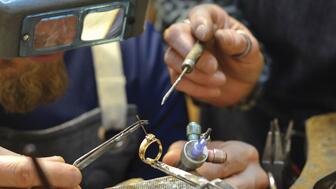
Launched in 2023, the program will help the passing of knowledge between generations and alleviate the shortage of bench jewelers.
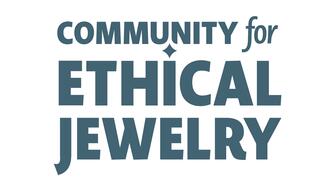
The organization is seeking a new executive director to lead it into its next phase of strategic growth and industry influence.


The nonprofit will present a live, two-hour introductory course on building confidence when selling colored gemstones.

Western wear continues to trend in the Year of the Fire Horse and along with it, horse and horseshoe motifs in jewelry.

Criminals are using cell jammers to disable alarms, but new technology like JamAlert™ can stop them.
![A peridot [left] and sapphires from Tanzania from Anza Gems, a wholesaler that partners with artisanal mining communities in East Africa Anza gems](https://uploads.nationaljeweler.com/uploads/cdd3962e9427ff45f69b31e06baf830d.jpg)
Although the market is robust, tariffs and precious metal prices are impacting the industry, Stuart Robertson and Brecken Branstrator said.

Rossman, who advised GIA for more than 50 years, is remembered for his passion and dedication to the field of gemology.

Guthrie, the mother of “Today” show host Savannah Guthrie, was abducted just as the Tucson gem shows were starting.

Butterfield Jewelers in Albuquerque, New Mexico, is preparing to close as members of the Butterfield family head into retirement.
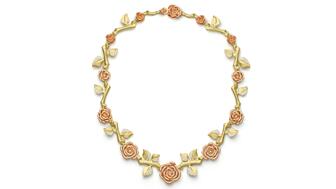
Paul Morelli’s “Rosebud” necklace, our Piece of the Week, uses 18-karat rose, green, and white gold to turn the symbol of love into jewelry.

The nonprofit has welcomed four new grantees for 2026.

Parent company Saks Global is also closing nearly all Saks Off 5th locations, a Neiman Marcus store, and 14 personal styling suites.

It is believed the 24-karat heart-shaped enameled pendant was made for an event marking the betrothal of Princess Mary in 1518.
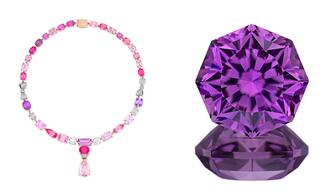
The AGTA Spectrum and Cutting Edge “Buyer’s Choice” award winners were announced at the Spectrum Awards Gala last week.

The “Kering Generation Award x Jewelry” returns for its second year with “Second Chance, First Choice” as its theme.

Sourced by For Future Reference Vintage, the yellow gold ring has a round center stone surrounded by step-cut sapphires.

The clothing and accessories chain announced last month it would be closing all of its stores.

The “Zales x Sweethearts” collection features three mystery heart charms engraved with classic sayings seen on the Valentine’s Day candies.

The event will include panel discussions, hands-on demonstrations of new digital manufacturing tools, and a jewelry design contest.

Registration is now open for The Jewelry Symposium, set to take place in Detroit from May 16-19.
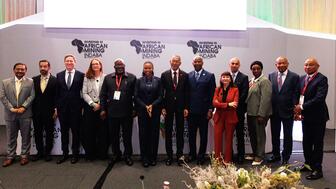
Namibia has formally signed the Luanda Accord, while two key industry organizations pledged to join the Natural Diamond Council.

Lady Gaga, Cardi B, and Karol G also went with diamond jewelry for Bad Bunny’s Super Bowl halftime show honoring Puerto Rico.
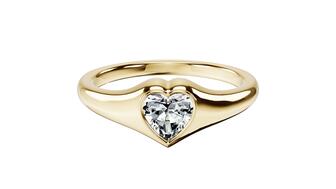
Jewelry is expected to be the No. 1 gift this year in terms of dollars spent.

As star brand Gucci continues to struggle, the luxury titan plans to announce a new roadmap to return to growth.




























